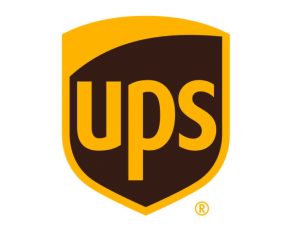
The just published UPS figures for the fourth quarter and the full year 2019 show a core US Express business that continues to grow respectably although other parts of the business experienced some turbulence. Pensions were, once again, a burden.
The core US Domestic Package business expanded successfully, driven by what the company’s CEO, Dave Abney, called the “structural shift to faster delivery in retail and e-commerce”. Over the year this has resulted in a revenue growth of 6.7%, at US$46.493bn. UPS claim a 14.3% year-on-year improvement in operating profit at $4.16bn. For the fourth quarter, profits rose by 7.5%, whilst revenue was up 6.6%. However, profits continue to be depressed by wage and investment costs.
UPS appears to be driving profits forward through higher productivity but also because it has been successful in shifting its market positioning towards higher-margin services. It is possible that the focus on small and medium sized businesses has sustained such margins. However, Dave Abney also said in a press conference today (30/1) that higher volumes were gained from Amazon business and that may have improved yields.
The International Package business was more troubled, apparently suffering from the slowness of global trade growth. Revenue fell by -1.5% over the past 12 months although profitability appeared to hold-up. UPS ascribed their problems to declines in volume in and out of the UK and on the Asia-US trade lane.
Things also seem to be complex at ‘Supply Chain & Freight’ with revenue falling by 3.2% to $13.381bn but operating profit growth in double digits. Contract logistics and the recently acquired pharma logistics company Marken grew yet freight forwarding and truck brokerage suffered. Bearing in mind the previous success of Coyote, the problems at truck brokerage are surprising.
Overall UPS revenue grew by 3.1% at $74bn and operating profit was up 11% at $7.79bn. However, a $2.196bn hit on pension contributions helped shove the company into a net-income loss in the fourth quarter of $106m as compared to a profit of $453m last year. Full year net-income was 4.44bn, down 7.3% on last year.
UPS’ core business may have seen an important development, with increasing profitability possibly due to successful market repositioning. Yet this has been obscured by UPS’ continuing struggles with its pension contributions.
Source: Transport Intelligence, January 30, 2020
Author: Thomas Cullen